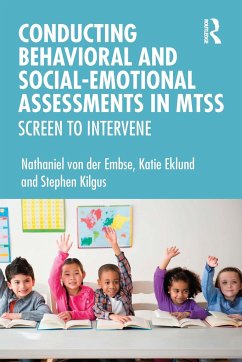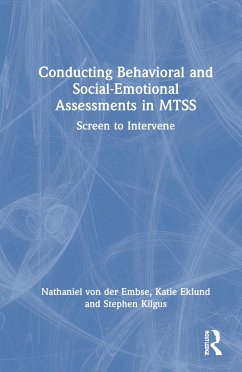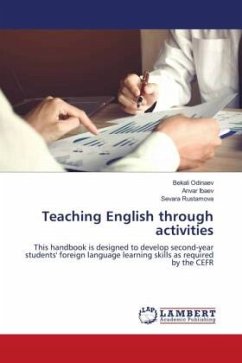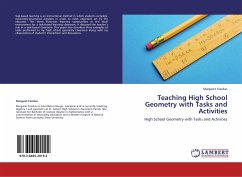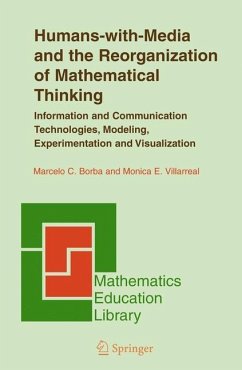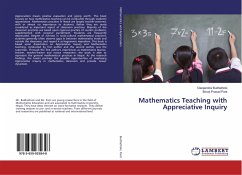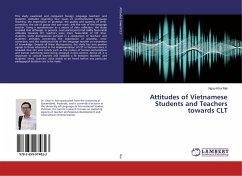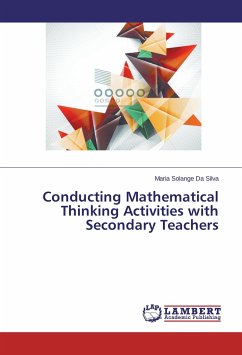
Conducting Mathematical Thinking Activities with Secondary Teachers
Versandkostenfrei!
Versandfertig in 6-10 Tagen
19,99 €
inkl. MwSt.

PAYBACK Punkte
10 °P sammeln!
Focusing on the environment of learning of a PD course and on teacher's classroom work, the aim of this study was to find links between what teachers learned about Mathematical Thinking Activities (Wiskundige Denkactiviteiten - WDA) with their work in classroom. Therefore, the study attempted to identify similarities, changes or empowerment on teacher's pedagogical content knowledge (knowledge about how to teach a subject) and teacher's professional competence (person's ability to transfer knowledge into action) (Maass, K.; Doorman, M.; pg. 890; 2013). In order to carry on the research, the st...
Focusing on the environment of learning of a PD course and on teacher's classroom work, the aim of this study was to find links between what teachers learned about Mathematical Thinking Activities (Wiskundige Denkactiviteiten - WDA) with their work in classroom. Therefore, the study attempted to identify similarities, changes or empowerment on teacher's pedagogical content knowledge (knowledge about how to teach a subject) and teacher's professional competence (person's ability to transfer knowledge into action) (Maass, K.; Doorman, M.; pg. 890; 2013). In order to carry on the research, the study was developed in Netherlands under the two research questions: - In terms of changes in teachers' practices when working with a WDA activity, how are the empowerments of teaching approaches? Which changes emerge on these approaches? - To what extent does a WDA course contribute to the empowerment of teachers' competence in working with inquiry learning? On this study, WDA specification is related with an Inquiry - Based way of teaching and learning. Thus, it was expected that teachers could recognize and/or develop WDA tasks with characteristics of Inquiry Based Learning (IBL) Theory.



